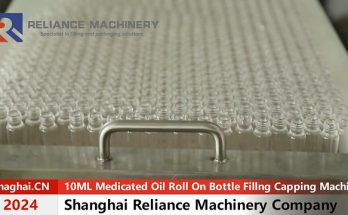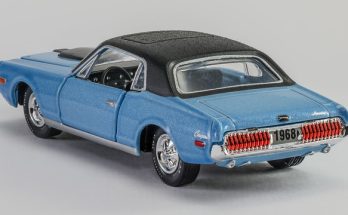
Waterproof Wiring Connectors
Waterproof electrical connectors are essential for use in marine, automotive, and outdoor settings, where exposure to moisture is likely. They form tight seals and offer insulation against high-moisture conditions.
Protect your connections from moisture and other environmental factors with waterproof wiring connectors. This will prevent corrosion for the exposed wire ends and improve safety.
Sealing
In wet environments, waterproof connectors create a seal to keep water and other contaminants out. This protects equipment from damage and allows systems to perform as intended in a variety of environmental conditions.
Waterproof wire connectors are available in a wide range of types and sizes, depending on your specific requirements. For example, some are designed for a specific number of wires or a certain length of cable. Others feature a locking mechanism to prevent accidental disconnects. The waterproofing process for the connectors also differs, with some using a liquid-based solution or a silicone coating.
Liquid waterproof connectors typically require a pre-mixed formulation that is applied to an exposed connection site. They are often supplied with a brush or applicator that is used to apply the mixture in and around the conductors and connector opening. Once the liquid is dry, you can twist or screw the connector onto the wires, pushing firmly until hand-tight.
Alternatively, you can choose solderable waterproof connectors. These use a low-temperature solder sleeve and thicker insulation tubing to make connections. These are easy to install and come with a handy wire size chart printed on the packaging, making them compliant with all standards. You can also use gel-filled waterproof connectors. These twist-on connectors are filled with a gel that surrounds the ends of the wires to protect them from environmental contamination.
Heat Shrink Tubes
Heat shrink tubes are available in a variety of different materials and sizes. The right one for your application depends on the temperature range and type of contaminants it must resist. If you need to withstand extreme temperatures, for example, opt for a polyolefin tube. These sleeve-like products insulate wires and cables to prevent corrosion. They also help in waterproof wiring connectors reducing flexing of terminals and connectors. Some tubing comes with a meltable or adhesive inner layer for extra sealing power.
A key consideration when choosing a tube is its shrink ratio. The higher the ratio, the greater the insulating coverage. For example, a three to one ratio means the sleeve will shrink down to half its original size when heat is applied. Choosing a tube that has the same recovered diameter as the area you want to insulate is ideal.
If you are working in harsh environments, choose a polyolefin and lint-free tube for the best results. This material is more durable than standard tubing and offers great resistance to oil and chemicals. It is a good choice for splicing, soldering and sealing connections in automotive and marine applications. The tinned copper barrels of this wire butt connector provide strong crimps that ensure your wiring is safe from moisture and other threats. These connectors also include dual-wall heat shrink with an adhesive that allows you to make a waterproof connection without using a separate sealant. They are color-coded and come with a transparent storage box for easy identification.
Adhesives
If your electrical connectors are exposed to a lot of moisture and water, then waterproofing them is essential. This helps prevent corrosion and short circuits. There are several ways you can do this, including using liquid electrical tape, self fusing silicone tape, or adhesive lined heat shrink tubes. To apply any of these, first make sure the power is off, and the area is clean. Then, apply the adhesive to the connector and wrap it with the tube or tape.
You can also use hermetic or sealed connectors that are designed to protect against water ingress. These can withstand a higher IP rating and are made from weather-resistant materials. They can also withstand high-pressure water jets and long-term immersion in water.
Another way to waterproof wiring connectors is to cover them with a sealant or epoxy resin. This is a great option for industrial applications or even marine environments. However, you need to ensure that the sealant is safe for electrical use and adheres well to both the cable and the enclosure.
If you need to use waterproof connectors in harsh industrial settings, then look for those with a higher IP rating. These are designed with factors like pin-count, power ratings, dimensions, and locking mechanisms in mind. They will also be able to withstand harsh environmental conditions, including exposure to pressurised water for cleaning and long-term submersion in water.
Electrical Tape
When working with electrical wires, it’s important to follow safety guidelines and best practices. This is especially true when waterproofing connections and wiring connectors. This is because these products are designed to protect and insulate connections, but can pose a threat if they’re not handled correctly.
For example, it’s important to make sure the power is fully disconnected and the area is free of moisture. This will help ensure the integrity of the sealing material and prevent water from entering the connection. Additionally, it’s recommended to use a silicone sealant that is designed for electrical use. This type of product is durable and flexible, making it a great choice for waterproofing electrical connectors.
Another option is to use electrical waterproof bulkhead connector tape to splice and wrap exposed connections. It’s important to choose a high-quality, UL-listed electrical tape. This type of tape is made to withstand extreme temperatures and conditions that other types of tape can’t. In addition to its insulation properties, electrical tape also offers a strong adhesive that resists peeling.
At Tape Jungle, we carry a wide selection of electrical tape for all your needs. We offer standard industry black tape as well as a variety of colors that are ideal for color-coding purposes. We also carry 3/4 inch tape, which is the most popular for electrical connections.

